This article is written by Ayushi Mahajan, from Centre for Legal Studies, Gitarattan International Business School (Guru Gobind Singh Indraprastha University). This article talks about the famous Kenyatta case and the legal provisions associated with it.
Table of Contents
Background and facts of the case
A general election was held in Kenya on 27 December 2007, which included parliamentary, presidential and civil elections. Current President Mavi Kibaki, who was the representator of the Party of National Unity and Raila Odinga who represented the Orange Democratic Movement, were the leading candidates. Indications described that Odinga was likely to win the elections hosted, but the results announced by Kenya’s Election Commission showed that Kibaki was elected and sworn in as for the post of president. Soon after the announcement of the Election Commission, Odinga rejected and announced the result, claiming that the widespread electoral fraud had taken place for the results of the election. Electoral observers from the European Union have also claimed that the Election Commission had failed to ensure the credibility of the votes by the voters.
In the days that followed the results of the election, violence spread throughout the country. An estimated 1,200 people died and more than 500,000 were displaced from their homes. A government spokesperson accused Odinga’s supporters of “engaging in ethnic cleansing”, while Odinga had claimed that the president’s supporters were “directly guilty of genocide.” Violence was spread predominantly along the tribal lines; Mavi Kibaki is a part of the Kikuyu tribe, is the largest tribe in Kenya, while Odinga is from the Luo tribe which is comparatively shorter. The violence continued until a peace agreement between Kibaki and Odinga was signed under the mediation of former UN Secretary-General Kofi Annan, under which Kibaki would remain as the president and Odinga would now take over the newly created office of Prime Minister.
In 2008, the two sides agreed to the series as part of the mediation between Kibaki and Odinga. One of these was to establish a commission of post-election violence inquiry to investigate the violence and especially the police action, headed by Kenyan Judge Philip Waki. Waki’s report then recommended that the Kenya government then set up a special tribunal to prosecute those who were responsible for the worst crimes. And although both Kibaki and the Odinga supported the local tribunal, the idea was then rejected by the National Assembly of Kenya.
Waki passed his report, which also included a list of names considered most responsible for the violence for Kofi Annan, directing that it would be passed in the International Criminal Court if it did not progress with the local tribunal. On 16 July, 2009, the Waki Commission gave a copy of its report to the International Criminal Court, along with six boxes of documents and accessories, as well as a sealed envelope containing the list of those who could be implicated in the violence. The prosecutor, Luis Moreno Ocampo, opened the envelope, inspected its contents and re-sealed it. The ICC initially gave the Kenyan government a July 2010 deadline to set up a local tribunal, before handing the case over to ICC prosecutor Luis Moreno Ocampo. The “Waki List” has not yet been made public, and there is speculation that it may contain more than six names, which were initially objected to by the ICC; As a result, there have been some calls in Kenya to release the list of ICC or Waki.
Suspects
Prosecutor Luis Moreno Ocampo on 15 December, 2010 named all six suspects, and made an application to the Pre-Trial Chamber II for summons to be issued to them. Six people are colloquially known as Ocampo Six (or Ocampo 6). The nominees named by Moreno Ocampo were:
- Major General Mohammad Hussein Ali – Chief Executive of the Postal Corporation of Kenya, who was the Commissioner of the Kenya Police at the time of post-election violence.
- Uhuru Muigai Kenyatta – Deputy Prime Minister and Finance Minister who is also the President of the Kanu Political Party which is part of President Kibaki’s National Unity Party.
- Henry Kiprono Kosgey – Minister of Industrialization and member of the National Assembly for the Tinderet Constituent Assembly which is also the chairman of the Orange Democratic Movement.
- Francis Kirimi Muthaura – He was the head of the Public Service, Cabinet Secretary and the Chairman of the National Security Advisory Committee.
- William Samoei Ruto – He was the minister of the Higher Education, Science and the Technology and the ODM member of the National Assembly for Eldoret North Constituency.
- Joshua Arap Sang – Head of operations of Kalenjin-language radio station KASS FM, which was the radio presenter during the post-election violence.
Legal representation
In 2011, it was reported that Kenyatta recruited British lawyers Gillian Higgins and Steven Kay, who had previously defended Slobodan Milosevich in the International Criminal Tribunal for Yugoslavia, to lead their legal team.
Francis Muthaura initially hired another British lawyer named Karim Ahmad Khan, who previously led the defense of Charles Taylor in the special court for Sierra Leone, and later also appointed Essa Fall and Shyamala Alagendra, both former Worked in the ICC Prosecutor’s Office. Ali’s defense was led by Canadian John Phippot, Kosgei by Julius Kemboi, and William Ruto by Dr. Kindiki appointed Kithur and Katwa Kigeni. Kignei is also representing Joshua Sang. The Kenyan government has agreed to pay the legal costs of Francis Muthura and Mohammed Ali on account of the actions they would incur during their public employment. The decision has attracted criticism from many Kenyans.
The charges
The prosecutor presented the pre-trial Chamber II allegations as two separate cases, one being the prosecution of Ali, Kenyata and Mathura, and the other case being the prosecution of Kosegi, Ruto and Song. All six suspects were charged with crimes against humanity.
The Prosecutor v. William Samoei Ruto, Henry Kiprono and Joshua Arap Sang
Their charges were:
- Murder which constitutes a crime against humanity in violation of Article 7(1)(a) of the Rome Statute;
- Constitution of crime against humanity, deportation or forcible transfer of a population in violation of Article 7(1)(d) of the Rome Statute;
- Constitute a crime against humanity in violation of Article 7(1)(f) of the Rome Statute;
- Harassment constitutes a crime against humanity in violation of Article 7(1)(h) of the Rome Statute.
The Prosecutor v. Francis Kirimi Muthaura, Uhuru Muigai Kenyatta and Mohammed Hussein Ali
Their charges were:
- Murder which constitutes a crime against the humanity in violation of Article 7(1)(a) of the Rome Statute;
- Constitute a crime against humanity, deportation or forcible transfer of a population in violation of Article 7(1)(d) of the Rome Statute;
- Rape and other forms of sexual violence, constitute a crime against humanity in violation of Article 7(1)(g) of the Rome Statute;
- Harassment constitutes a crime against humanity in violation of Article 7(1)(h) of the Rome Statute;
- Inhuman acts constituting a crime against humanity in violation of Article 7(1)(k) of the Rome Statute.
Pre-trial phase
The Pre-Trial Chamber II stated that there were many reasonable grounds to believe that William Ruto and Henry Kosgey were responsible for the indirect co-perpetrators of the offenses mentioned in Nos. 1, 2 and 4, but this decision in the case of Joshua Sang narrated his participation in the commission of crimes was not necessary and therefore only decided that there were grounds to believe he had contributed to the crimes.
The Chamber declined a request by the prosecutor to include a charge of torture. In the case of Kenyatta, Muthura and Ali, Chamber ruled that there were some reasonable grounds to believe that the Uhuru Kenyatta and the Francis Muthura were indirectly convicted as co-offenders. The offenses in which they were accused, but in the case of Mohammed Ali, the Chamber ruled that their contribution was not necessary for the commission of the offenses and therefore they were charged with contributing otherwise.
On 8 March, 2011, Pre-Trial Chamber II issued summons to appear for all six suspects in two cases. With the decision by the prosecutor to authorize the investigation, Judge Hans-Peter Kaul disbanded and opposed the issuance of summons.
The result of the confirmation of charges hearing
The trial of Ruto, Kosgey and Sang was confirmed in the International Criminal Court from 1 to 8 September, 2011. The hearings for Mathura, Kenyatta and Ali lasted from September 21 to October 5, 2011.
The decision was announced on January 23, 2012 on the confirmation of the charges in both cases. Pre-trial Chamber II found, which was based on the evidence which was presented by the prosecution, that one of the crimes against humanity – murder, deportation or forcible transfer and torture had been committed. The judges further noted that there are sufficient grounds to believe that Ruto is responsible as an indirect co-perpetrator for those crimes against humanity, and that Sang contributed to the crimes committed by a group of individuals led by Ruto, Which had a common purpose. The charges against Kosgey were dismissed.
Why were charges dropped against Uhuru Muigai Kenyatta
The prosecutor’s office on 5 December, 2014 announced that it was withdrawing all charges against Kenyatta. The verdict followed a trial room order dismissing the request to postpone the trial and the prosecutor gives notice within a week that he will withdraw the charges or proceed to trial. (In September 2014, the prosecutor requested an adjournment for the trial indefinitely, because the evidence was “insufficient to prove Mr. Uhuru Kenyatta’s alleged criminal responsibility beyond a reasonable doubt.”) In an evacuation notice, the prosecutor stated that the evidence was not corrected and cited a lack of cooperation from the Kennan government as the charges were dropped.
On March 13, 2015, the judges of the Trial Chamber V(b) unanimously presented the proceedings against Kenyatta as well as his summons. However, the Chamber stated that if new evidence became available, the decision to end the proceedings would not prejudice the prosecution from bringing charges again.
Participation of victims
ICC procedures allow for the participation of victims, who can submit opinions and comments to the court and also apply for revaluation. In the case of Ruto et al., 394 victims applied to participate in the proceedings and the pre-trial chamber recruited 327 of those victims as participants. In the case of Muthura et al., 249 victims applied and 233 were admitted as participants.
Domestic cases related to post-election violence crimes
Three public interest cases are being heard in Kenya’s High Court, which includes various categories of survivors of violence spread across the country between December 2007 and February 2008. The first one was filed in November 2011, concerning 25 people displaced from their homes. The second filed in February 2013 includes eight survivors of sexual and gender-based violence. The third case, first filed in February 2013, involves 13 people suffering from a police bullet. In each case, the concerned citizens and non-governmental organizations supported him and asked the court that the government had failed to protect him and to award him.
International response
After Moreno Ocampo made an initial announcement of his intention to prosecute the six suspects, US President Barack Obama called on Kenya to cooperate with the ICC. In a statement, he said:
“I urge all the leaders of Kenya, and the people I serve, to fully cooperate in the ICC investigation and implement the reform agenda and focus on the future of our country. Those who were found responsible as individuals they will be held accountable for their crimes. No community should be held responsible for shame or collectively.
Let the accused bear their own burdens – and let us keep in mind that they are innocent until proven guilty under the ICC process. Kenyans can count on the United States as a friend and partner as you proceed.”
— Barack Hussein Obama
The African Union supported the position of the Kenyan government in seeking to delay or postpone the ICC proceedings. As of 2011, all formal investigations before the International Criminal Court concerned African countries, and only African defendants have been convicted. This has caused some resentment within Africa that the court is unfairly targeting Africa.
ICC deputy prosecutor Fatou Bensouda denied that the ICC or its prosecutors were discriminatory, speaking in Cote d’Ivoire, said that:
“Whenever I hear about the ICC targeting Africa, the ICC is doing double justice, it makes me sad, especially as an African woman, knowing that these conflicts, in these conflicts most of Africa is occurring on the continent.”
— Fatou Bensouda
References
- https://www.icc-cpi.int/CaseInformationSheets/kenyattaEng.pdf
- https://www.ijmonitor.org/kenya-cases-background/
LawSikho has created a telegram group for exchanging legal knowledge, referrals and various opportunities. You can click on this link and join:
 Serato DJ Crack 2025Serato DJ PRO Crack
Serato DJ Crack 2025Serato DJ PRO Crack


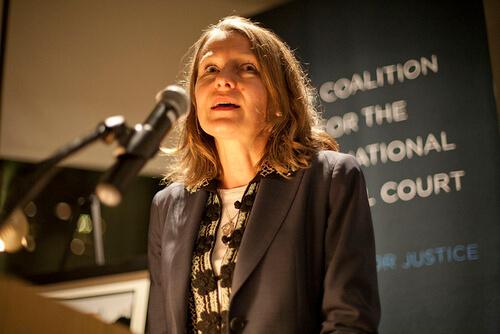

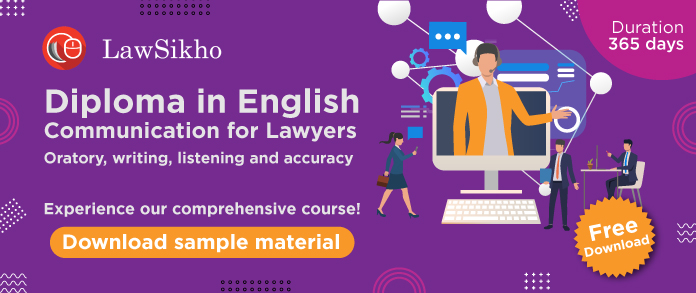

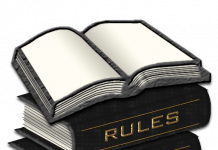
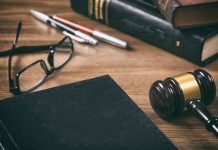
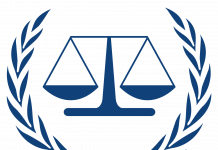


 Allow notifications
Allow notifications


